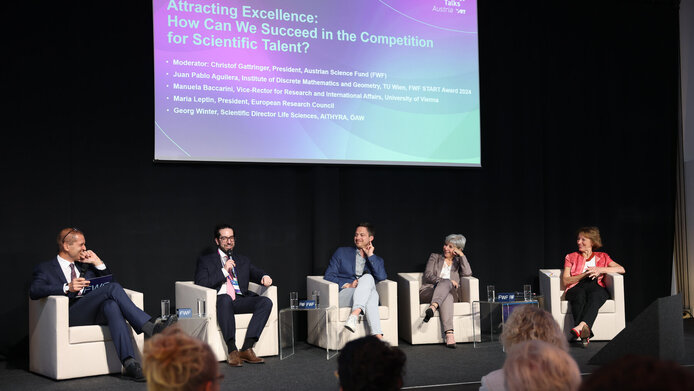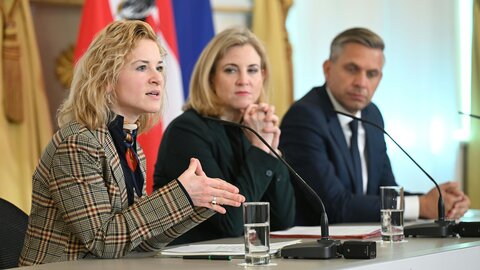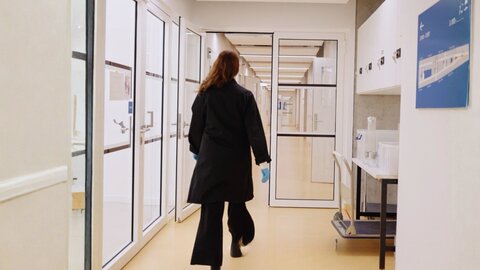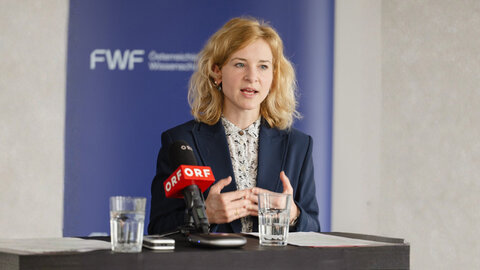Young Researchers Need Scientific Freedom and Career Opportunities

Maria Leptin, President of the European Research Council, opened the discussion with a keynote speech on “Attracting Excellence: How Can We Succeed in the Competition for Scientific Talent?”. “We must finally give young talents real independence,” was the key message she brought to Vienna. Delayed tenure decisions, rigid hierarchies, and small-scale funding prevent researchers from tackling long-term research ideas. Europe has the resources, says Leptin, “But we need the political courage to break down barriers.” She emphasized that above all, young researchers need freedom, autonomy, and an inspiring environment. Europe must also reduce its structural hurdles: Unlike the USA and China, Europe’s research landscape features fragmented funding systems, varying regulations on transferring pensions and recognizing degrees, and late appointment procedures, making it difficult to attract international talent.
Lack of prospects, especially for young talent
Christof Gattringer, President of the Austrian Science Fund (FWF), moderated the event, focusing on Austria and presenting the results of a recent FWF survey among Austrian researchers: 40% of respondents had previously worked abroad, and 43% of early-stage researchers came to Austria from a position abroad, indicating that Austria is internationally attractive. At the same time, the survey also revealed shortcomings: Two thirds of postdocs consider their career chances in academia to be low.
Manuela Baccarini, Vice-Rector of the University of Vienna, emphasized universities’ responsibility to actively support postdocs in their career planning and to be transparent. “We can't give young researchers everything they want, but we can give them what they need,” she quoted Liz Elvidge from the Imperial College London in her statement. Transparency and individual support are crucial. “Postdoc should not be a career, but a stepping stone towards a career, inside or outside academia,” she said. Transparency and honesty are crucial: Young researchers need reliable time frames, individual coaching, international networking, and a cultural shift towards a greater appreciation of different career paths to be able to make confident decisions and realistically assess their options.
Georg Winter, Life Science Director of AITHYRA, the new research institute for artificial intelligence in biomedicine at the Austrian Academy of Sciences (ÖAW), took the opportunity to make a bid for more permeability between research and the private sector. Many postdocs are too focused on a traditional academic career, in spite of exciting alternatives in biotech, start-ups, and industry. “We have to show that excellent research is also possible – and attractive – outside the university,” he emphasized. AITHYRA itself wants to be a role model with well-financed, independent group management positions and clear rules for spin-offs. A culture with room for experimentation and even failure is crucial to retaining talent and driving innovation. At the same time, it is also important not to glorify private-sector research; in comparison to academic research, a degree of independence is lost.
Juan Pablo Aguilera, mathematician at TU Wien and FWF START Award winner, talked about what made him choose to come to Austria for his research work. Germany offers a high level of academic freedom, an attractive environment, and excellent peers, but some structures could be improved. He says that uncomplicated visa and immigration procedures, English-language support upon arrival, tax incentives, transparent application processes, and clearly communicated career options are crucial. This is the only way to ensure that the best young researchers from abroad come to Austria – and stay.
The discussion resulted in a clear appeal: Universities, funding agencies, and research policy-makers should work together to create predictable career paths, facilitate international mobility, and welcome the best minds regardless of their origin. “Europe is capable of excellence,” says ERC President Maria Leptin. “Now we need the courage to follow this path on a broad scale. We cannot afford to not give talented people a chance.”





